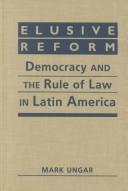| Listing 1 - 6 of 6 |
Sort by
|
Book
ISBN: 019765021X 0197654266 Year: 2022 Publisher: London : Hurst & Company,
Abstract | Keywords | Export | Availability | Bookmark
 Loading...
Loading...Choose an application
- Reference Manager
- EndNote
- RefWorks (Direct export to RefWorks)
Political conflict is endemic to a postcolonial state such as Pakistan. Reformulation of the political system after independence draws on a gradual encroachment of tradition defined in terms of identity and ideology over modernity represented by institutional design and citizen orientations. Partition led to structural discontinuity in Pakistan as a seceding state as opposed to India which was a successor state. This book explores the way militarization and judicialization of politics centralized state authority and rendered the federalist arrangement into an empty shell.
Book
ISBN: 9783030903909 Year: 2022 Publisher: Cham Springer International Publishing :Imprint: Springer
Abstract | Keywords | Export | Availability | Bookmark
 Loading...
Loading...Choose an application
- Reference Manager
- EndNote
- RefWorks (Direct export to RefWorks)
Political stability. --- Balance of power. --- Central Asia. --- Power, Balance of --- Power politics --- International relations --- Political realism --- Destabilization (Political science) --- Political instability --- Stability, Political --- Consensus (Social sciences) --- Legitimacy of governments --- Central Asia, economic and political issues

ISBN: 1626371334 9781626371330 1588260356 9781588260352 Year: 2022 Publisher: Boulder
Abstract | Keywords | Export | Availability | Bookmark
 Loading...
Loading...Choose an application
- Reference Manager
- EndNote
- RefWorks (Direct export to RefWorks)
Elusive Reform explores one of the Latin American countries' biggest challenges: establishing a rule of law. Based on a close examination of historical patterns, it demonstrates how executive power and judicial disarray thwart progress toward judicial independence, state accountability, and citizen access to effective means of conflict resolution. Ungar critiques the wide spectrum of agencies responsible for enforcing the law, from the police and prisons to provincial governors, the attorney general, and the judiciary itself. He similarly analyzes the region's most recent reform innovations, among them judicial councils, national ombudsmen, and community justice forums. Although his focus is on Argentina and Venezuela, he presents valuable material on other Latin American countries, particularly Bolivia. Exposing many overlooked vulnerabilities of Latin America's democratic institutions, Elusive Reform broadens our understanding of democracy itself.
Rule of law --- Democracy --- Political stability --- Destabilization (Political science) --- Political instability --- Stability, Political --- Consensus (Social sciences) --- Legitimacy of governments --- Supremacy of law --- Administrative law --- Constitutional law --- Latin America --- Politics and government --- Primauté du droit --- Démocratie --- Stabilité politique --- Amérique latine --- Politique et gouvernement
Book
ISBN: 3030903893 3030903907 9783030903909 Year: 2022 Publisher: Cham, Switzerland Springer,
Abstract | Keywords | Export | Availability | Bookmark
 Loading...
Loading...Choose an application
- Reference Manager
- EndNote
- RefWorks (Direct export to RefWorks)
Political stability. --- Balance of power. --- Central Asia. --- Power, Balance of --- Power politics --- International relations --- Political realism --- Destabilization (Political science) --- Political instability --- Stability, Political --- Consensus (Social sciences) --- Legitimacy of governments --- Central Asia, economic and political issues --- Great powers. --- Strategic rivalries (World politics) --- International rivalries (World politics) --- World politics --- Powers, Great --- Super powers --- Superpowers

ISBN: 1588269957 1849724318 9781588269959 9781849724319 9781588265562 1588265560 Year: 2022 Publisher: Boulder
Abstract | Keywords | Export | Availability | Bookmark
 Loading...
Loading...Choose an application
- Reference Manager
- EndNote
- RefWorks (Direct export to RefWorks)
Power and Succession in Arab Monarchies provides an essential compendium of information regarding the politically charged issue of succession in Bahrain, Jordan, Kuwait, Morocco, Oman, Qatar, Saudi Arabia, and the United Arab Emirates.
Monarchy --- Political stability --- Petroleum industry and trade --- Energy industries --- Oil industries --- Destabilization (Political science) --- Political instability --- Stability, Political --- Consensus (Social sciences) --- Legitimacy of governments --- Kingdom (Monarchy) --- Executive power --- Political science --- Royalists --- Government policy --- Political aspects --- Persian Gulf Region --- Politics and government --- Monarchie --- Stabilité politique --- Pétrole --- Case studies. --- Cas, Etudes de --- Industrie et commerce --- Politique gouvernementale --- Aspect politique --- Persique, Région du Golfe --- Politique et gouvernement
Book
ISBN: 1003297692 100068380X 1032286148 1000683966 Year: 2022 Publisher: London : Routledge,
Abstract | Keywords | Export | Availability | Bookmark
 Loading...
Loading...Choose an application
- Reference Manager
- EndNote
- RefWorks (Direct export to RefWorks)
Presenting case studies and comparisons across seven countries, this book addresses key questions as to the nature of state fragility, policies used to mitigate it, assessment of outcomes and prospects. It offers a novel empirical contribution in examining a range of distinct but interdependent dimensions of state fragility, not only focusing on questions of state legitimacy, capacity and authority, but also involving the economy and resilience to political and economic shocks, as well as at vital questions of context and diversity. Examining Afghanistan, Lebanon, Burundi, Pakistan, Sierra Leone, Papua New Guinea and Rwanda within the context of their different local circumstances, and within broader questions of global security, the book identifies unique factors that have played a part in their specific context and explores key drivers and dominant features. This book will be of key interest to scholars and students of state fragility and more broadly to students of politics, public policy, development studies, state-society relations, political economy, state building, peace and conflict studies, international studies, security studies regional studies., as well as NGOs and international organizations.
Economic development. --- Political development. --- Political stability. --- Destabilization (Political science) --- Political instability --- Stability, Political --- Consensus (Social sciences) --- Legitimacy of governments --- Development, Political --- Political science --- Development, Economic --- Economic growth --- Growth, Economic --- Economic policy --- Economics --- Statics and dynamics (Social sciences) --- Development economics --- Resource curse --- Developing countries --- Politics and government --- Emerging nations --- Fourth World --- Global South --- LDC's --- Least developed countries --- Less developed countries --- Newly industrialized countries --- Newly industrializing countries --- NICs (Newly industrialized countries) --- Third World --- Underdeveloped areas --- Underdeveloped countries
| Listing 1 - 6 of 6 |
Sort by
|

 Search
Search Feedback
Feedback About UniCat
About UniCat  Help
Help News
News